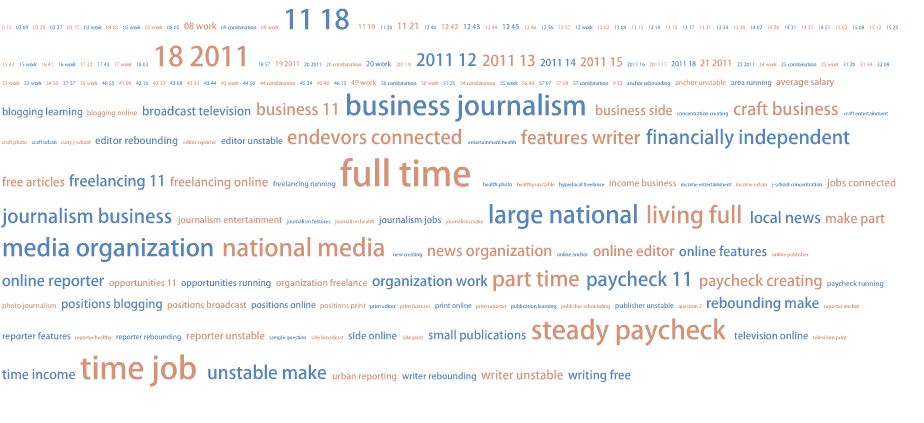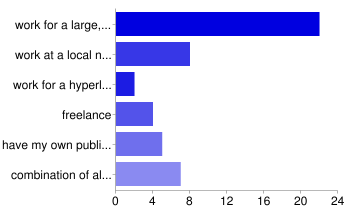By Orlando Rodriguez
So, you’ve sacrificed a hell of a lot to become a full-time journalism student, haven’t you? Horror stories of disappearing journalism jobs have you thinking if you should have sent out law school applications instead? If you have, you are not alone. However, if you plan on sticking it out or are passionate about fighting the good fight with pen, pad, camera and recorder, the results of our survey may pique your interest.
The question posed to the classes of 2011 and 2012 were: “what’s the job market going to look like 16 months down and thousands of dollars in debt down the road?”
Thirty-four CUNY J-School students were polled at random over a three-day period. Fifty percent felt that the current state of journalism jobs is unstable while thirty-two percent felt that that the jobs market is rebounding.
At the same time, sixty-five percent of those polled expressed that their preference despite is to work for a large media organization. Only fifteen percent of all respondents answered that they would prefer to run their own publication and even fewer (twelve percent) expressed a desire to freelance after graduation.
79% of respondents felt that the most opportunities lie in business journalism, compared with other areas. However, this does not appear to translate into there being an exodus among students into the business concentration. Seventy-one percent said they would not choose a concentration based on money, but on their passion.
There were other groups of interesting responses to post-graduation plans and how well students felt that the CUNY Graduate School of Journalism prepared them for the job market. For the complete summary of responses, along with the complete list of data, please click here.

















